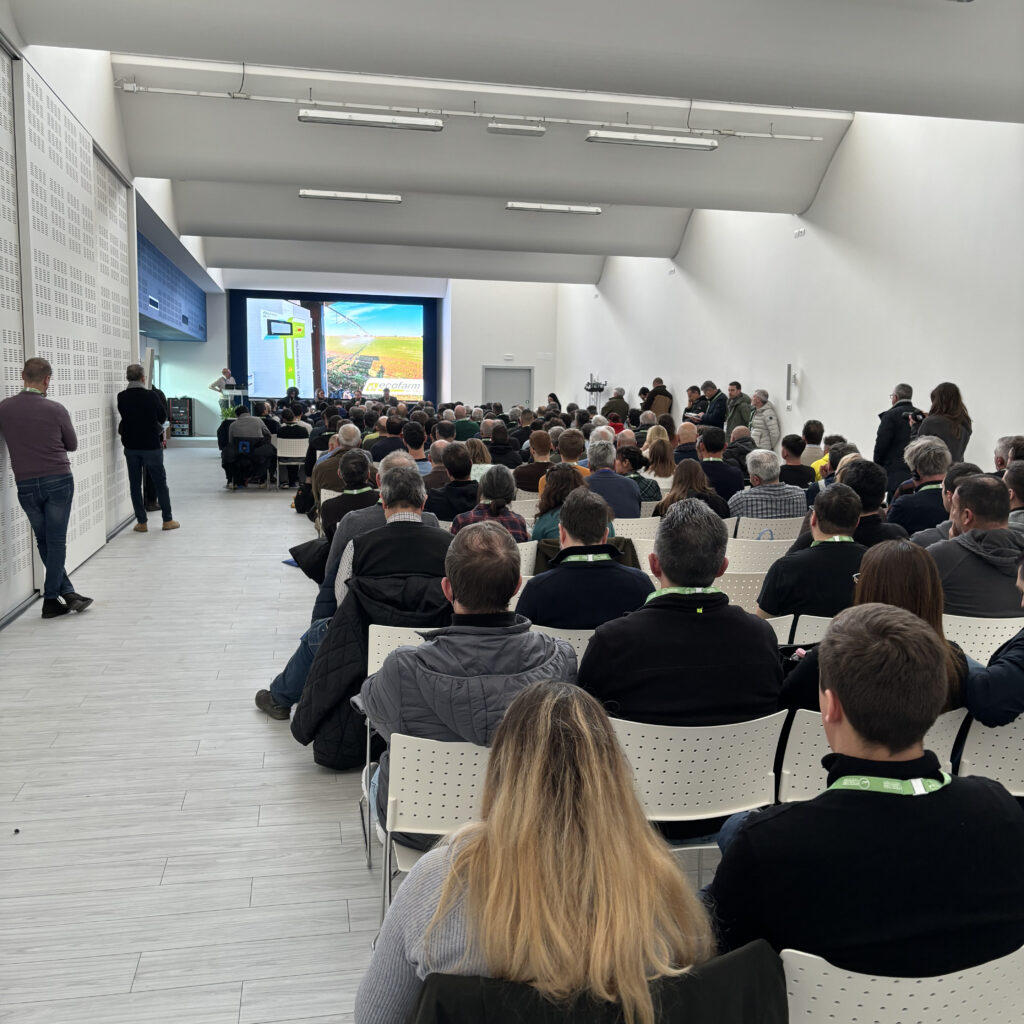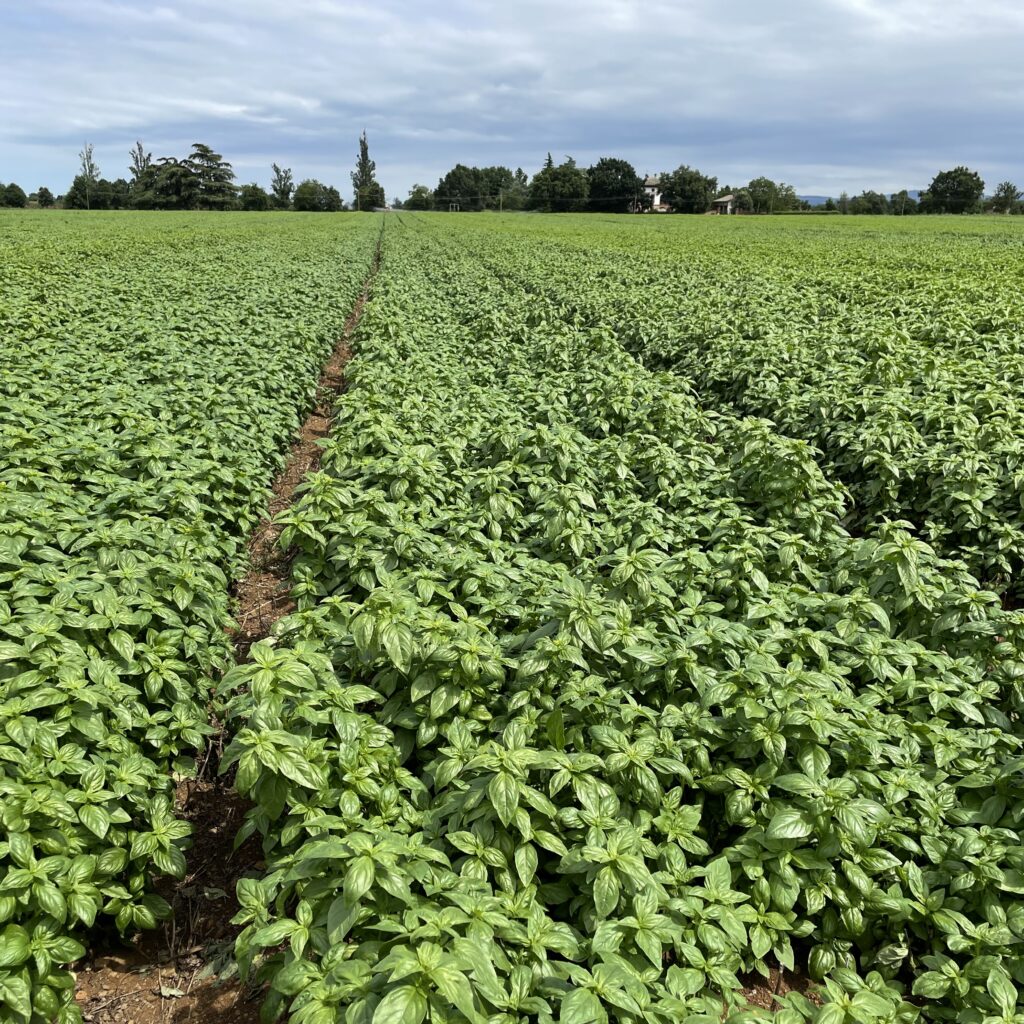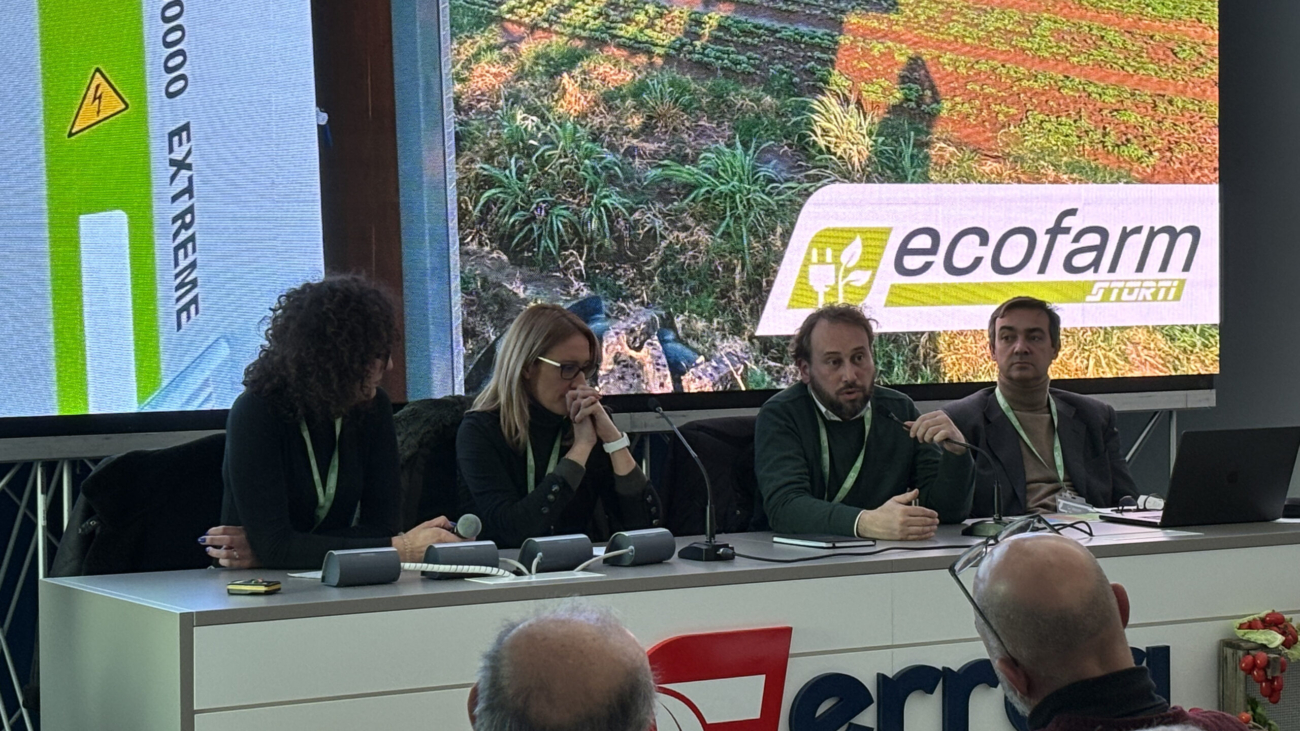Ecofarm Storti was one of the featured companies at Horticulture Technique in the Field, the three-day event in Guidizzolo dedicated to the world of horticulture in the event that drew the participation of more than 50 companies.

For Ecofarm great interest not only in the exhibition space but also in the conference on the use of ozone in irrigation, moderated by Freshplaza journalist Cristiano Riciputi. Along with Giorgio Zaffani, a biotechnologist from Ecofarm, Professor Elodie Vandelle, from the University of Verona, and Alessia Bonati, from La Felina Farm, also participated.
“Ozone is a gas generated in nature from oxygen – began Giorgio Zaffani – is a very simple molecule, O3, which when it decays goes back to being simple oxygen” thus leaving no residue. The focus shifted to the use of ozone in irrigation. “Water sources,” Zaffani continued, “are a little-treasured topic, but having the microbiological aspect under control is crucial. Wells, reservoirs or river surface water, each of these sources has individual specificities both from a chemical point of view but also from a microbiological point of view. The great advantage of ozone, compared to all other water disinfection systems, is that it can treat large flow rates in a short time with great efficiency and thus achieve, disinfection and oxygen enrichment with great benefit to crops, thus being able to directly treat water during irrigation.”
The floor was then turned over to Professor Elodie Vandelle of the University of Verona: “We wanted to understand together with Ecofarm, whom we thank for involving us, the effect of this treatment on the plants given the results they were getting on the farms, and we focused on an arugula crop where an irrigation water treatment machine was installed. We considered several parameters, but one of the first observations we made was that treated plants, retain more water, thus resulting in greater leaf weight than untreated plants; in practical terms this translates into greater resistance to water stress and in qualitative terms with crisper leaves and longer life span. In addition to this, plants after germination grow more vigorously with increased photosynthetic activity.”
This scientific work also received two awards, highlighted by Professor Vandelle: “Students are protagonists in these projects, and in this case Riccardo Greco carried out the work with sampling and analysis, and his thesis was awarded the Agro Innovation Aword and also received an award from the Apollinare Cesira Veronesi Foundation. A work recognized by the area that highlighted the importance and spin-off for applications in the agri-food chain.”

Finally, Alessia Bonati, who brought her experience on the use of ozone on the farm for basil cultivation: “We learned about Ecofarm in 2020 and started using ozone with a machine installed on the sprayer. Last year we installed an ozone generator instead to treat irrigation water directly from the well. This use allows us to reduce plant protection products, and in the 6 ha where we used ozone, we were able to make two cuts without treatment, thus zero residue. In the total campaign, the number of total active ingredients was reduced to 3. We will now install two more machines on two more wells.”.
Many questions at the end of the conference confirmed the great attention of companies to this technology and to the applications proposed by Ecofarm Storti.

